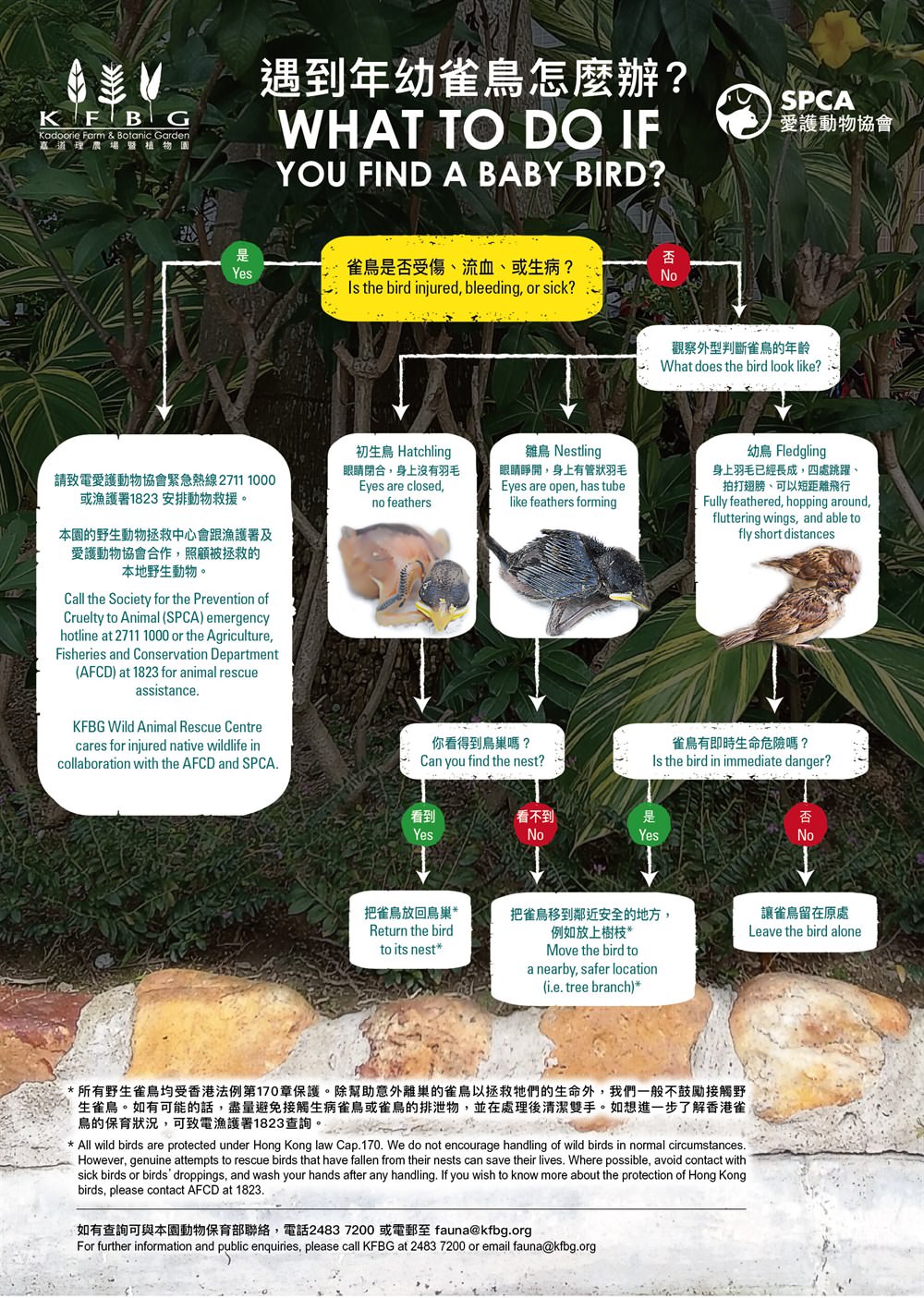What to do if you find a baby bird?
Spring and summer are the nesting seasons for most wild birds in Hong Kong SAR. Last year (2018), the KFBG Wild Animal Rescue Centre received more than 800 nestlings and fledglings rescued by members of the public, the Agriculture, Fisheries and Conservation Department (AFCD) and the Society for the Prevention of Cruelty to Animals (SPCA). The most commonly received birds are Spotted Doves, Red Whiskered Bulbuls, Eurasian Tree Sparrows, Crested Mynas and Collared Scops Owls.
Knowing what to do when you find a baby bird can greatly increase its chance of survival. To decide whether or not to take action next time you spot a baby bird on the ground, follow this helpful flow chart.
FAQ
1. If I touch the bird, will its mother abandon it?
This is a myth. Birds have a poor sense of smell. If you have to move the bird back to its nest or a safe place, it won’t deter the parents from coming back.
But birds are very sensitive to disturbance. Birds sometimes abandon their eggs or young if predators or humans are nearby. Thus it is key to observe the bird for a period of time from a distance before or after providing help.
Where possible, avoid contact with sick birds or birds’ droppings, and wash your hands after any handling.
2. Can I raise the bird myself?
In Hong Kong, it is illegal for the general public to keep native wild birds in captivity. All wild birds and their eggs and nests in the Hong Kong SAR are protected by the Wild Animal Protection Ordinance (Cap 170).*
Raising native wild birds in captivity is always a last resort and should only be carried out under license. Without appropriate expertise and facilities birds raised in captivity are often denied the opportunity to learn skills they will need to survive in the wild. Unless a bird is injured or sick, it is essential to leave it in the wild to learn from its parents.
Please remember in nature not all animals and birds will survive. The weak, sick or poorly raised individuals are expected to perish. This ensures that the limited resources available to the parents are focused on providing for offspring that can prosper and breed in future.
If human intervention is required in case of injured and sick birds, it should be carried out by professionals and authorized animal rescue staff. Raising a baby bird is extremely difficult and unlikely to be successful without relevant expertise. A bird needs to be both physically healthy and mentally prepared for release back into the wild.
Many birds raised by humans will become imprinted and will never be able to return to the wild because they are unable to adapt naturally.
Thus, it is not advisable to rear the bird yourself.
* All wild birds are protected under Hong Kong law Cap 170, any person who hunts or wilfully disturbs them, has in his possession or under his control of any wild birds, takes, removes, injures, destroys or wilfully disturbs their nest or eggs shall be liable upon conviction to a fine of HK$100,000 and imprisonment for one year.
If you have any enquiries, please contact us at fauna@kfbg.org.



